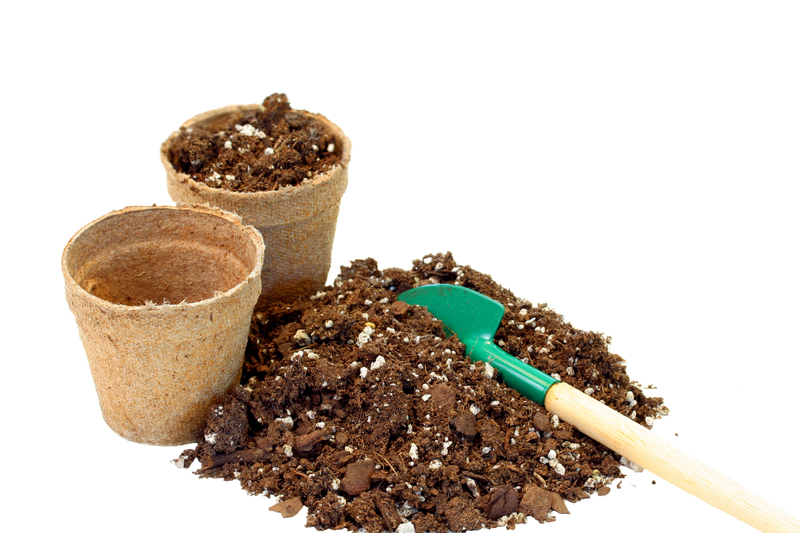Evergreen Climbers: Illuminating the Darkest Nooks
Posted on 26/06/2025

Evergreen Climbers: Illuminating the Darkest Nooks
When it comes to gardening challenges, shady nooks and corners often top the list. However, with the right selection of evergreen climbers, these dark spots can be transformed into lush, verdant displays all year round. Discover how these incredible plants can bring life and vibrance to the gloomiest parts of your garden.
Understanding Evergreen Climbers
Evergreen climbers are a fantastic option for those seeking to cover walls, fences, and trellises while maintaining greenery throughout the year. They offer aesthetic appeal as well as functional benefits, such as providing privacy, reducing noise, and some even offer wonderful fragrances. These plants have unique adaptations that allow them to thrive even in low-light conditions, making them perfect for darker areas.
Types of Evergreen Climbers
There are several species of evergreen climbers that are particularly adept at handling shaded environments:
- Ivy (Hedera spp.): Known for its ability to cling to virtually any surface, ivy is a versatile climber that can cover large areas swiftly.
- Climbing Hydrangea (Hydrangea petiolaris): This climber is not only beautiful with its lovely white blooms, but it also thrives in partial to full shade.
- Jasmine (Jasminum spp.): While some species of jasmine require more sunlight, options like star jasmine can flourish in shaded areas and fill your garden with their delightful fragrance.
- Evergreen Clematis (Clematis armandii): This vigorous climber provides a fountain of star-shaped blooms and thrives in shade, especially the Clematis armandii variety.
Each of these climbers has specific requirements and characteristics that can complement and enhance the look of your garden.
Choosing the Right Climber for Your Space
When selecting an evergreen climber, consider the specific conditions of your garden and the structural support available. Below are some tips to help you decide:
- Assess Light Conditions: Identify areas in your garden that receive partial or full shade and choose climbers known to do well under those conditions.
- Consider Growth Habit: Some climbers are more aggressive than others. Make sure to pick a species that will remain manageable in size.
- Evaluate Support Structures: Determine what kind of support structure you have--walls, fences, trellises--and choose climbers that can effectively adhere or climb those surfaces.
- Mind Climate Compatibility: Ensure that the climber plants are suited to your USDA hardiness zone to avoid any setbacks in growth.
The Benefits of Evergreen Climbers
_Utilizing evergreen climbers_ in your garden offers numerous advantages beyond their beauty and ability to brighten dark nooks. Let's explore a few key benefits:
Year-Round Greenery
Unlike their deciduous counterparts, evergreen climbers retain their foliage all year, ensuring that your garden remains vibrant even during the winter months. This consistent greenery provides visual interest and helps integrate space throughout the seasons.
Environmental Benefits
Evergreen climbers can positively impact the environment in various ways. They offer shelter and food to wildlife, help with air purification by absorbing carbon dioxide, and mitigate urban heat effects by providing shade.
Space Efficiency
Climbers make the most of vertical spaces, allowing gardeners to maximize their planting area. This is especially beneficial in small gardens or urban balconies where horizontal space is limited.
Planting and Caring for Evergreen Climbers
Planting Tips
- Choose the Right Time: The best time to plant evergreen climbers is during the early spring or fall, when temperatures are mild, and the soil can provide the best environment for their roots to settle.
- Prepare the Soil: Ensure that the soil is well-draining and amended with organic matter to enhance fertility. A mix of topsoil and compost is ideal.
- Position the Plant Correctly: Plant the climber against its support structure with a slight incline toward it. This encourages the plant to grow onto the structure naturally.
Care Tips
- Watering: Regular watering is crucial during the establishment period. Once established, most evergreen climbers require less frequent watering.
- Pruning: Keep your climbers in check with seasonal pruning. This helps maintain the size and encourages healthy new growth.
- Fertilization: An annual application of balanced fertilizer in spring can help support robust growth.
- Pest and Disease Control: Regularly inspect your plants for any signs of pests or diseases. Early detection is crucial for effective management.
Conclusion
Evergreen climbers offer a perfect solution to enhance even the darkest corners of your garden. Their ability to thrive in low-light conditions, coupled with their stunning beauty and year-round appeal, make them indispensable additions to any landscape. By selecting the right species and providing proper care, these green climbers can bring vibrant life and structural beauty to all the gloomy spots of your outdoor space.

Latest Posts
Mitigate Climate Change with Your Backyard Garden
Explore 9 Key Gardening Tips Every Beginner Should Master
Cultivate Change: Begin Your Garden Renewal Journey
Innovative Hedge Trimming: Craft Shapes and Master Techniques

